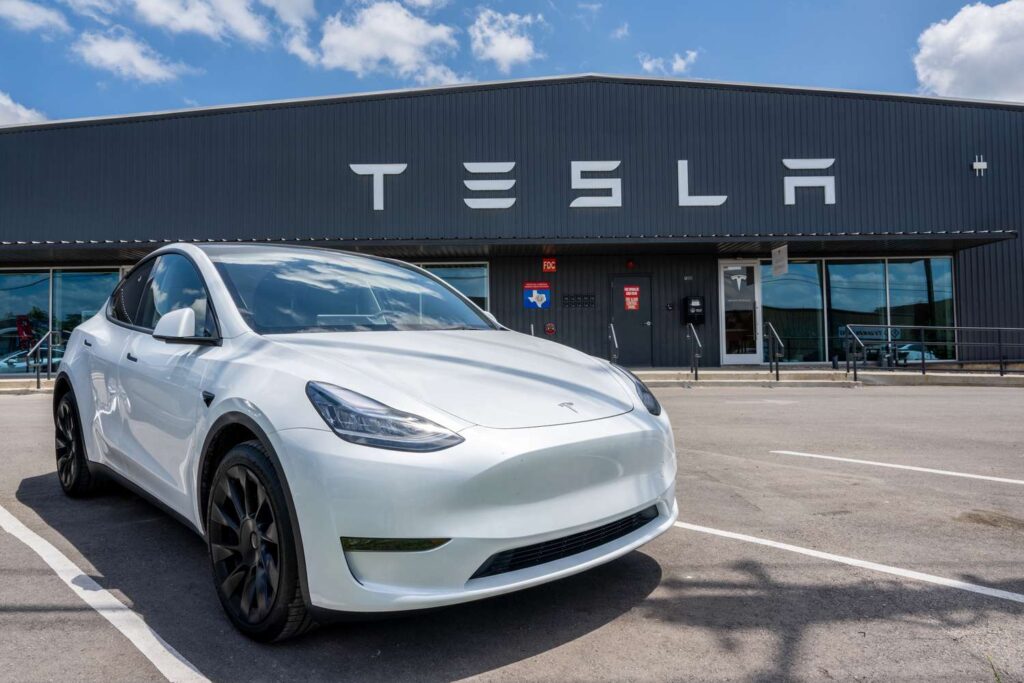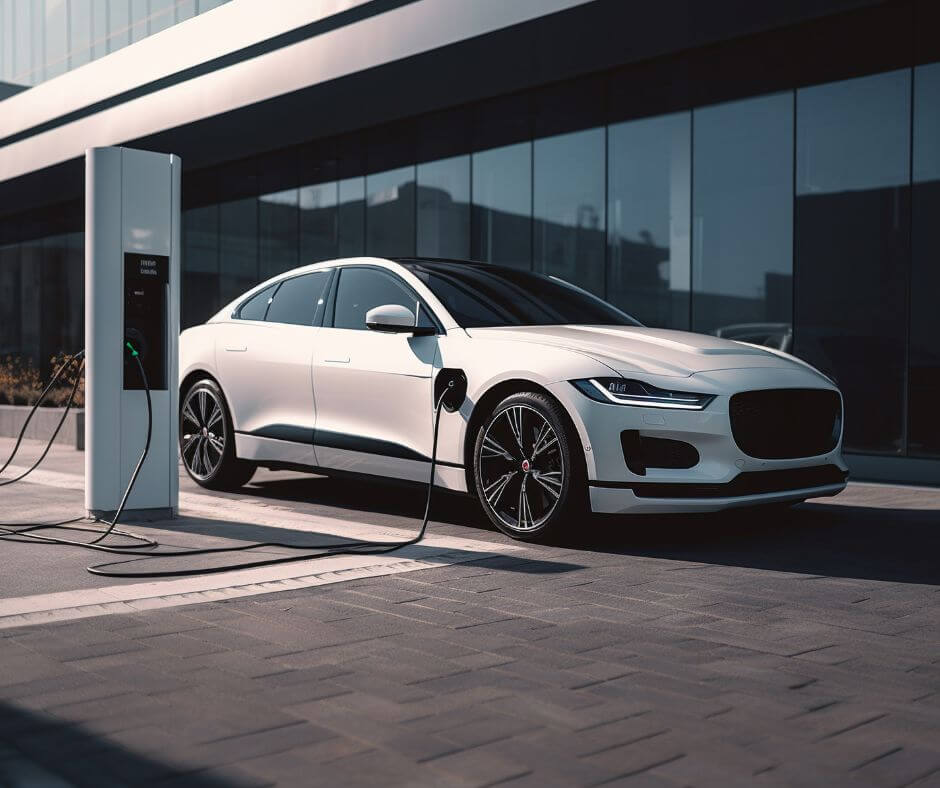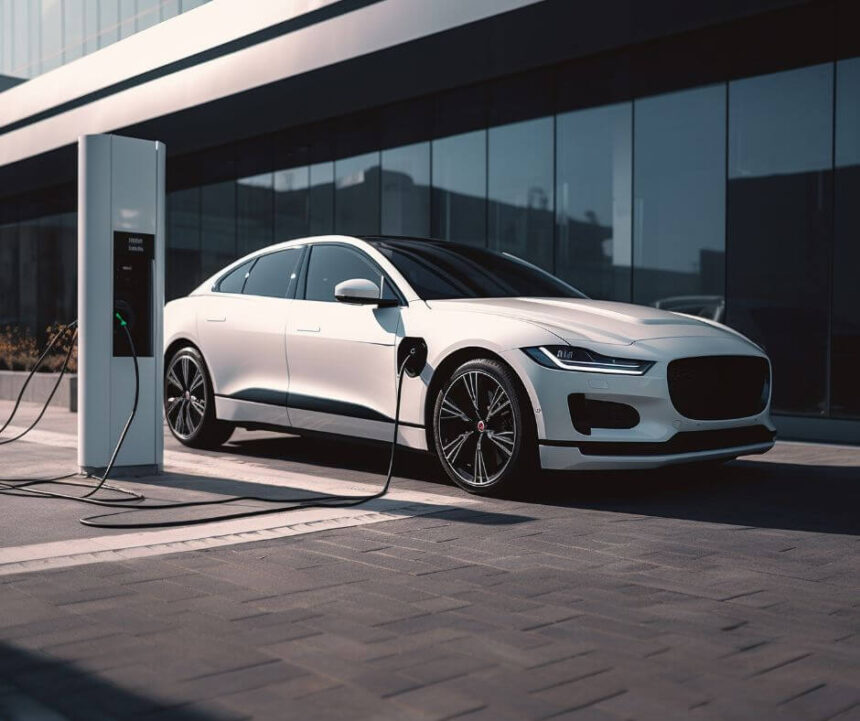In recent years, the automotive industry has witnessed a significant shift toward electric vehicles (EVs). The development and adoption of electric cars have been at the forefront of discussions about sustainable transportation, offering promising solutions to reduce emissions and reliance on fossil fuels.
As environmental concerns continue to grow, electric cars are not only shaping the future of transportation but also the entire automotive industry. In this blog post, we will explore how electric cars are transforming the automotive landscape, their benefits, challenges, and what lies ahead for this rapidly evolving industry.
The Rise of Electric Cars
The concept of electric vehicles is not new. In fact, electric cars date back to the 19th century, but it is only in recent decades that they have gained significant attention. The growing concerns about climate change, air pollution, and the environmental impact of traditional gasoline-powered cars have prompted governments, businesses, and consumers to take a closer look at electric alternatives.
As the world grapples with the effects of climate change, the demand for sustainable solutions has never been more urgent. Electric cars are increasingly seen as a key solution to these environmental challenges, offering a cleaner and more energy-efficient mode of transportation. Major automakers, including Tesla, Nissan, Chevrolet, and BMW, have introduced a variety of electric car models, making them more accessible to consumers than ever before.
Key Advantages of Electric Cars

One of the primary reasons electric cars are gaining popularity is the multitude of benefits they offer. Let’s dive into some of the key advantages of electric vehicles.
1. Environmental Benefits
Electric cars are widely regarded as more environmentally friendly than their gasoline-powered counterparts. Unlike traditional vehicles, EVs produce zero tailpipe emissions, significantly reducing air pollution in urban areas. This is especially important in cities where air quality is a major concern, and the reduction of carbon dioxide (CO2) emissions can have a direct positive impact on public health.
The use of renewable energy sources, such as solar and wind power, to charge electric cars further enhances their environmental benefits. As the global energy grid becomes greener, the carbon footprint of electric vehicles will continue to decrease, making them an even more attractive option for eco-conscious consumers.
2. Lower Operating Costs
While electric cars may have a higher upfront cost compared to conventional vehicles, they offer significant savings in the long run. One of the primary reasons for this is the lower cost of electricity compared to gasoline. Charging an electric car is generally much cheaper than filling up a gas tank, especially if the car is charged at home using affordable electricity rates.
Additionally, electric cars have fewer moving parts than internal combustion engine vehicles, which means they require less maintenance. EVs do not need oil changes, and their brake systems tend to last longer due to regenerative braking, which helps reduce wear and tear.
3. Government Incentives and Tax Breaks
Many governments worldwide offer various incentives to encourage the adoption of electric cars. These incentives can significantly reduce the cost of purchasing an electric vehicle. For instance, in the United States, federal tax credits and state-specific rebates are available for buyers of electric cars, making them more affordable for consumers.
Some regions also offer perks like access to carpool lanes, reduced registration fees, and exemptions from certain taxes. These incentives further enhance the financial appeal of electric cars and help speed up their adoption.
4. Energy Independence
Electric cars contribute to energy independence by reducing reliance on imported oil. By using domestically sourced electricity, countries can decrease their dependence on foreign energy sources and protect themselves from fluctuating fuel prices. This can improve national security and stabilize energy markets.
5. Quiet and Smooth Ride
Electric cars are known for their smooth and quiet driving experience. Unlike gasoline-powered cars, which have internal combustion engines that produce noise and vibration, electric cars operate with little to no engine noise. This provides a more enjoyable driving experience, reducing noise pollution and making cities quieter and more peaceful.
Challenges Facing Electric Cars
While electric cars offer numerous benefits, they also face several challenges that need to be addressed for widespread adoption. These challenges include:
1. Limited Range and Charging Infrastructure
One of the most significant concerns for potential electric car buyers is the range. Although battery technology has improved significantly in recent years, many electric vehicles still have a limited range compared to traditional gasoline-powered cars. For long-distance driving, this can be a major inconvenience.
The availability of charging stations is another key issue. While charging infrastructure has been expanding rapidly, it is still not as widespread as gas stations. This can create “range anxiety,” where drivers worry about running out of battery before they can reach a charging station.
2. High Upfront Costs
While the long-term savings of electric cars are substantial, the initial purchase price is still higher than that of a gasoline-powered vehicle. This is mainly due to the cost of the battery, which remains the most expensive component of an electric vehicle. However, as battery technology improves and production scales up, the cost of electric cars is expected to decrease over time.
3. Limited Model Variety
Although the variety of electric car models has increased, there are still fewer choices for consumers compared to conventional vehicles. Most electric cars are compact or mid-size sedans, and options in other categories, such as pickup trucks and SUVs, are limited. However, automakers are beginning to address this gap, with companies like Rivian and Ford introducing electric trucks and SUVs.
4. Battery Disposal and Recycling
As electric cars become more popular, there will be an increasing demand for the disposal and recycling of used batteries. While electric vehicle batteries are designed to last for many years, they will eventually reach the end of their life. Efficient recycling and disposal systems are essential to minimize the environmental impact of used batteries.
The Future of Electric Cars

The future of electric cars looks promising, with rapid advancements in technology, infrastructure, and consumer adoption. Several trends indicate that electric vehicles will become increasingly prevalent in the coming years:
1. Advancements in Battery Technology
One of the key factors driving the growth of electric cars is advancements in battery technology. Over the past decade, the energy density of batteries has improved significantly, allowing for longer ranges and faster charging times. Research into solid-state batteries and other innovative technologies could further enhance the performance of electric vehicles.
2. Expansion of Charging Networks
To address the issue of charging infrastructure, governments and private companies are investing heavily in the expansion of charging networks. Fast-charging stations are becoming more widespread, and innovations in wireless charging technology could make charging even more convenient in the future. Additionally, the development of ultra-fast chargers will allow electric vehicles to recharge in minutes rather than hours.
3. Autonomous Electric Vehicles
The rise of autonomous driving technology is another trend that could shape the future of electric cars. Many automakers are developing self-driving electric vehicles, which could revolutionize the way we travel. Autonomous vehicles could reduce traffic congestion, improve safety, and enhance the overall efficiency of transportation.
4. Increased Affordability
As production scales up and technology continues to improve, the cost of electric cars is expected to decrease, making them more accessible to a wider range of consumers. Additionally, the availability of more affordable electric car models will help accelerate adoption and drive market growth.
5. Global Shift Toward Clean Energy
Governments around the world are committing to reducing greenhouse gas emissions and transitioning to clean energy. As more countries implement policies to phase out internal combustion engines and promote electric vehicles, the global adoption of electric cars will continue to grow. This shift will help reduce reliance on fossil fuels and accelerate the transition to a more sustainable future.
Conclusion
Electric cars are undoubtedly the future of the automobile industry. With their numerous environmental, economic, and technological benefits, they are poised to revolutionize transportation in the coming years. While challenges such as limited range, high upfront costs, and charging infrastructure need to be addressed, the continued advancements in electric vehicle technology and the growing support from governments and consumers indicate a bright future for EVs.
As more automakers invest in electric vehicle development and innovation, we can expect to see even more diverse, affordable, and efficient electric cars on the market. The shift toward electric vehicles is not just a trend; it’s a fundamental change that will shape the future of transportation and help pave the way toward a cleaner, more sustainable world.
Whether you are an eco-conscious driver or someone looking to reduce long-term transportation costs, electric cars offer a promising solution. As the world moves toward greener solutions, there has never been a better time to consider making the switch to an electric vehicle.

